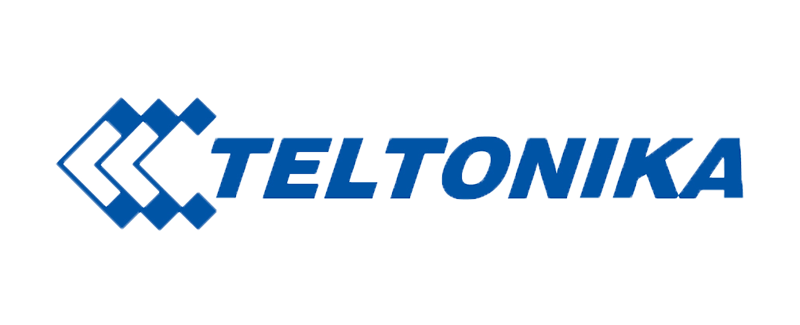Global Asset Management | Mobile Network
EVERYTHING & ALLWAYS
Get an enhanced worldwide overview about your targets of interest.
No matter where – no matter when

Satellite-Tracking based on Iridium satellite-network technologie
LTE-Tracking
VHF-Tracking
Mobile Network & Routing

Satellite-Tracking
What does it mean?
Used for what?

LTE-Tracking
Which technology?
For which application?

Mobile Network
What is behind?
Which connectivity?

VHF-Tracking
How does it work?
Based on AIS?

Satellite Tracking in Fleet and Asset Management
Satellite tracking is a powerful technology used to monitor the real-time location and movement of objects from space. While it plays a vital role in areas like weather forecasting and space exploration, it is especially transformative in fleet tracking and asset tracking.
Fleet tracking involves using satellites to monitor vehicles such as trucks, ships, or aircraft. GPS-enabled devices installed in each vehicle transmit location data to a central system, allowing companies to optimize routes, reduce fuel consumption, and improve delivery times. This real-time visibility enhances operational efficiency and helps ensure driver safety.
Asset tracking, on the other hand, focuses on monitoring valuable equipment, containers, or goods in transit. Satellite-based trackers can operate in remote or off-grid areas where cellular networks are unavailable. This is particularly useful in industries like logistics, mining, and agriculture, where assets often move across vast and isolated regions.
Both tracking methods rely on satellite constellations and ground-based systems to collect and transmit data. Advanced software platforms then analyze this data to provide actionable insights, such as geofencing alerts, maintenance schedules, or theft detection.
As global supply chains grow more complex, satellite tracking offers a reliable and scalable solution for managing mobile resources. It not only improves transparency and accountability but also supports smarter, data-driven decision-making across industries.
LTE Tracking in Fleet and Asset Management
LTE tracking uses 4G Long-Term Evolution (LTE) cellular networks to monitor the real-time location and status of vehicles, equipment, and goods. Unlike traditional GPS-only systems, LTE tracking provides faster data transmission, broader coverage in urban areas, and enhanced connectivity for smart tracking solutions.
In fleet tracking, LTE-enabled devices are installed in vehicles to transmit location, speed, fuel usage, and driver behavior data to a central platform. This allows fleet managers to monitor operations in real time, optimize routes, reduce idle time, and improve safety. LTE’s low latency and high bandwidth make it ideal for transmitting rich data, including video feeds from dashcams or diagnostics from vehicle sensors.
Asset tracking benefits from LTE by enabling continuous monitoring of high-value or mobile assets such as containers, trailers, or construction equipment. LTE trackers can send alerts if an asset moves unexpectedly, leaves a designated area (geofencing), or experiences environmental changes like temperature or humidity. This is especially useful in logistics, manufacturing, and supply chain management.
LTE tracking systems often integrate with cloud-based platforms and mobile apps, offering users instant access to data and analytics. As LTE networks are widely available and reliable, they provide a cost-effective and scalable solution for businesses seeking greater visibility and control over their mobile resources.
With the rise of IoT and smart logistics, LTE tracking is becoming a cornerstone of modern fleet and asset management strategies.


VHF Tracking in Maritime Fleet Management
VHF (Very High Frequency) tracking is a widely used method for monitoring the position and movement of ships, particularly in coastal and inland waters. Operating in the 30 MHz to 300 MHz range, VHF radio signals are ideal for short- to medium-range communication and tracking, making them essential in maritime fleet management.
In fleet tracking of ships, VHF tracking systems are often integrated with the Automatic Identification System (AIS). AIS transponders on vessels broadcast real-time data such as position, speed, heading, and vessel identity over VHF frequencies. This information is received by nearby ships, coastal stations, and satellites, enabling accurate tracking and collision avoidance.
VHF-based tracking is especially valuable for port authorities, shipping companies, and coast guards, as it provides a reliable and cost-effective way to monitor vessel traffic, manage port operations, and ensure maritime safety. Unlike satellite tracking, VHF systems offer low-latency communication and are less affected by weather conditions, though their range is typically limited to around 40–60 nautical miles from shore.
Modern fleet management platforms combine VHF tracking data with GPS and satellite inputs to provide comprehensive situational awareness. This hybrid approach allows for seamless tracking of vessels both near the coast and on the open sea.
As maritime logistics grow more complex, VHF tracking remains a critical tool for enhancing operational efficiency, regulatory compliance, and navigational safety in the shipping industry.
About Us - Weatherdock AG
Weatherdock AG, headquartered in Nuremberg, Germany, is a global leader in the development and manufacturing of advanced maritime electronics. Since our founding, we have been committed to delivering high-quality, radio-based solutions for safety, navigation, tracking, and vessel monitoring.
Our product portfolio includes state-of-the-art AIS (Automatic Identification System) transponders, personal locator beacons, and tracking devices designed for both recreational and commercial maritime use. Whether for private boaters, professional fleets, or governmental organizations, our technologies ensure reliable communication and precise positioning on the water.
At Weatherdock, innovation and safety go hand in hand. Our systems are engineered to meet the highest international standards and are trusted worldwide for their performance and durability. From real-time fleet tracking to emergency rescue solutions, we provide the tools that help save lives and protect valuable assets at sea.
With a strong focus on customer support and continuous improvement, we proudly develop and produce our solutions in Germany. Our mission is to make maritime navigation and safety smarter, more efficient, and more secure—across oceans, coasts, and inland waterways.

Our partners



